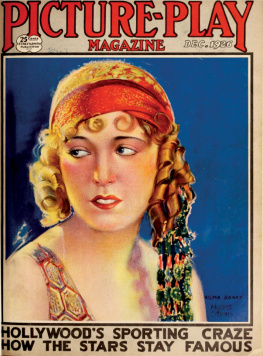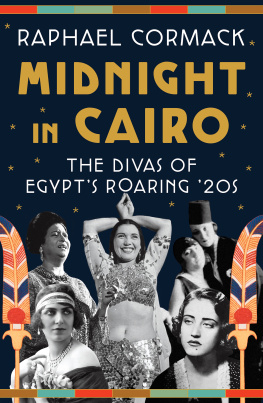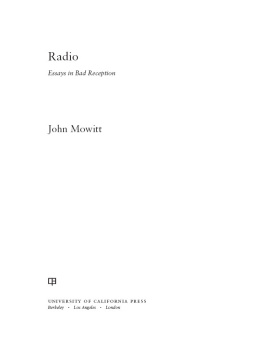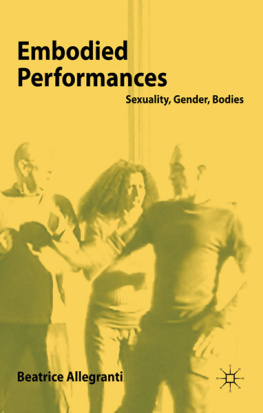Library of Congress Cataloging-in-Publication Data
Names: Scheper, Jeanne, 1967author.
Title: Moving performances : divas, iconicity, and remembering the modern stage / Jeanne Scheper.
Description: New Brunswick, N.J. : Rutgers University Press, 2016. | Includes bibliographical references and index.
Identifiers: LCCN 2016003238 | ISBN 9780813585451 (hardcover : alk. paper) | ISBN 9780813585444 (pbk. : alk. paper) | ISBN 9780813585468 (e-book (epub)) | ISBN 9780813585475 (e-book (web pdf))
Subjects: LCSH: African American women entertainersHistory20th century. | Women entertainersUnited StatesHistory20th century. | African Americans in the performing arts. | Women in the performing artsUnited States. | Performing artsPolitical aspectsUnited States20th century. | Performing artsSocial aspectsUnited States20th century. | United StatesRace relations20th century.
Classification: LCC PN1590.B53 S34 2016 | DDC 792.02/8082dc23
LC record available at http://lccn.loc.gov/2016003238
A British Cataloging-in-Publication record for this book is available from the British Library.
Copyright 2016 by Jeanne Scheper
All rights reserved
No part of this book may be reproduced or utilized in any form or by any means, electronic or mechanical, or by any information storage and retrieval system, without written permission from the publisher. Please contact Rutgers University Press, 106 Somerset Street, New Brunswick, NJ 08901. The only exception to this prohibition is fair use as defined by U.S. copyright law.
Visit our website: http://rutgerspress.rutgers.edu
This book is the result of many years and many hands. I give thanks for the artists, activists, and performers whose work and lives I write about and who inspired my thinking. I am grateful to the librarians and archivists who made this work possible and a pleasure, especially Antony M. Toussaint and Mary F. Yearwood of the Schomburg Center for Research in Black Culture; the Billy Rose Theater Division and Jerome Robbins Dance Division of the Library for the Performing Arts, New York Public Library; Madeline Matz of the Library of Congress; Margaret R. Goostray, Sean Noel, J. C. Johnson, and Jane Silva of the Howard Gotlieb Archival Research Center, Boston University Archives; the Libby Holman Foundation; the Pacific Film Archive at UCLA; the Association of Motion Picture Arts and Sciences; the Johns Hopkins University Sheridan Libraries; Sylvia Curtis and Sherri L. Barnes of Davidson Library at UCSanta Barbara, as well as the Ethnic and Gender Studies Library, the Arts Library, and the Music Library there; and Pauline Manaka and Christina Woo of Langson Library, UCIrvine. Final revisions were enhanced by an invitation to join the UCRiverside summer faculty writing group at the Center for Ideas and Society (2014). The research for this book was made possible with financial support from a number of sources including a Hellman Fellowship (20132014), the Academic Senate Council on Research Computing and Libraries (UCI), a postdoctoral fellowship in womens studies at the University of Houston (20052007), graduate funding from UCSB, and a grant from UCIrvine Humanities Commons. I am especially thankful to Professor Elliott Butler-Evans and family and honored to be the inaugural recipient of the Pearl Butler-Evans Award, UCSB.
While the entire manuscript has been heavily revised since they were originally published, sections of chapters have appeared in print. Portions of chapter 4 appeared in Of La Baker, I am a Disciple: The Diva Politics of Reception, Camera Obscura 65 (2007): 72101; and sections of chapter 3 appeared in Take Black or White: Libby Holmans Sound, Women & Performance: A Journal of Feminist Theory 9, no. 2 (1998): 95117.
Thank you to my astute and timely editors at Rutgers, especially Leslie Mitchner, India Cooper, and the generous anonymous readers who gave their time and insight. Without the invaluable comradeship and support of my friend of twenty years and now trusted editor, Laura Holliday, I could not have completed this book. My gratitude runs deep for my dissertation director, Maurizia Boscagli, and committee: Fred Moten, H. Porter Abbott, and Constance Penley; as well as my many mentors and colleagues at UCSB, especially Eileen Boris, Julie Carlson, Catherine Cole, Anna Everett, Laury Oaks, Cedric Robinson, and Elizabeth Robinson. My thinking has been encouraged and inspired along the way by the scholars Jacqui Alexander, Pamela Caughie, Anne Anlin Cheng, Maryse Cond, Brenda Dixon Gottschild, and Mae Henderson. Thank you to the feminist editorial collective of Camera Obscura. At UCIrvine, I have had the pleasure of working with intellectually inspiring colleagues in Gender and Sexuality Studies: Laura Kang, Jennifer Terry, Inderpal Grewal, Lilith Mahmud, Emily Thuma, and Catherine Sameh. For their generosity, I thank Vicki Ruiz, Jonathan Alexander, Susan Jarratt, Arlene Keizer, Christine Bacareza Balance, Jessica Millward, Jaye Austin Williams, Bridget Cooks, Alice Berghof, Sheron Wray, Denise Ferreira da Silva, Ann Cvetkovich, Andreana Clay, Deborah Vargas, Deborah Cohler, and Ernesto Martinez. I cherish my time at the University of Houston and thank Elizabeth Gregory, Margot Backus, Janice Blue, Sally Russ, Jay Mays, Natalie Gabiola, the Radical Womyn, the Gendermyn, and a memorable cohort of graduate students, especially the students in the Feminist Archives class. I also wish to thank the UH faculty writing group of Natalie Houston, Elizabeth Klett, and Karen Fang, and the UH and Rice Womens Studies feminist postdoc writing group: Kimberly Juanita Brown, Vochita Nachescu, and Mary Helen Dupree.
I am grateful for the circles of scholar-activist-artist friends who remain my interlocutors, especially Madelyn Detloff, for always reaching back and growing feminist connections, Geoffrey Bateman, Johanna Blakley, Beth Currans, Emily Davis, Kristin Koster, April Miller, Marisela Marquez, Susan Y. Najita, and Catherine Pancake.
This work is dedicated to my grandparents, especially my grandmother Marie Keane Lawler, who always corresponded and grew the archive; my grandma Anne Znojemsk Scheper, who advised me to cherish the everyday connections formed on the Avenue; my grandpa George Scheper, whom she met while he was playing piano at a speakeasy and who later started a little lending library at the Brooklyn Union Gas Company; and my grandmother-in-law Frances Terry, who generously said, Call me Grandma, and family. Thanks to my brother, steadfast friend and avid reader, collector, and maker of things, David Scheper; my mom, Nancy Lawler; and the Lawlers and Keanes of Chicago, all the aunties, uncles, and cousins, especially Megan Lizik. I am grateful for the unfailing support of my dad, George Scheper, and the family in New York, my stepmom Dianne Scheper and family, Nicole Ganz, Brian Ganz; sister-cousins Sarah Hughes and Jennifer Hughes, Santos Roman, Nate Hughes, ta Nancy Scheper-Hughes and uncle Michael Hughes, and the next generation: Santiago, Salvador, Dito, Nathanael Mandela, Ariella, and Aviana.









